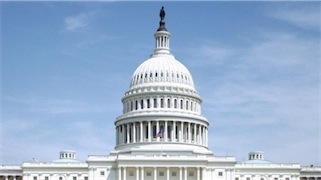Don't Underestimate The Possibility Of Catastrophe

John Dickerson has a Slate piece out that will probably seem wise a few months from now, encouraging everyone not to pay too much attention to the debt ceiling drama, assuring us that what's happening "is simply the drama necessary to advance the story."
And he's probably right. Still, I do continue to be made nervous by Juan Linz's 1990 point (PDF) that "the only presidential democracy with a long history of constitutional continuity is the United States."
He explained American exceptionalism thusly:
But what is most striking is that in a presidential system, the legislators, especially when they represent cohesive, disciplined parties that offer clear ideological and political alternatives, can also claim democratic legitimacy. This claim is thrown into high relief when a majority of the legislature represents a political option opposed to the one the president represents. Under such circumstances, who has the stronger claim to speak on behalf of the people: the president or the legislative majority that opposes his policies? Since both derive their power from the votes of the people in a free competition among well-defined alternatives, a conflict is always possible and at times may erupt dramatically. There is no democratic principle on the basis of which it can be resolved, and the mechanisms the constitution might provide are likely to prove too complicated and aridly legalistic to be of much force in the eyes of the electorate. It is therefore no accident that in some such situations in the past, the armed forces were often tempted to intervene as a mediating power. One might argue that the United States has successfully rendered such conflicts "normal" and thus defused them. To explain how American political institutions and practices have achieved this result would exceed the scope of this essay, but it is worth noting that the uniquely diffuse character of American political parties—which, ironically, exasperates many American political scientists and leads them to call for responsible, ideologically disciplined parties—has something to do with it.
Since 1990, America's political parties have become substantially less diffuse and we've evolved in the direction of responsible, ideologically disciplined parties. And yet we still have political institutions that have failed almost everyplace else they've been tried. Probably the debt thing will work out for the best. But I'm nervous.


Matthew Yglesias's Blog
- Matthew Yglesias's profile
- 72 followers



